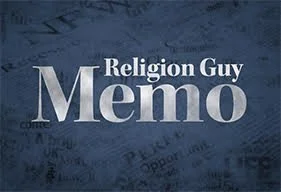During the heat of the election campaign, the Salem Media Group staged an 11-day “Battleground Talkers” tour that covered politically potent Arizona, Florida, Georgia, Michigan, Ohio and Pennsylvania.
Purpose: To boost conservative voter turnout and nudge undecided voters on what “may be the most important election in the history of our country. … The war for America’s soul is on the line.” The rallies’ Republican and conservative flavor was no surprise, since they featured Salem radio personalities Mike Gallagher, Sebastian Gorka, Hugh Hewitt, Charlie Kirk, Eric Metaxas, Dennis Prager and Brandon Tatum, among others.
Salem Media, a publicly traded firm founded and chaired by Edward G. Atsinger III (469-586-0080), is based in Irving, Texas. It boasts of being “America’s leading Christian media company” — in this context “Christian” means pretty much evangelical Protestant — with radio networks, local stations, syndicated programs, websites, podcasts, marketing services, event planning and Regnery, a major conservative book house.
The “Battleground” personalities appear on the company’s Salem Radio Network, which employs a “conservative news talk” format. Salem says market research indicates such programming “is highly complementary to our core format of Christian Teaching and Talk” heard on other Salem outlets because “both formats express conservative views and family values.”
A thoroughly-reported, 70-inch New York Times examination of the politics of the Salem “juggernaut” October 18 (paywalled here) said, among many other things, that the company consistently promotes “ballot fraud conspiracy theories.”
Such a mix of the sacred and the profane would have astonished the 20th Century founding preachers of conservative Protestant radio such as William Ward Ayer, Donald Grey Barnhouse, Percy Crawford, M.R. DeHaan, Charles Fuller, Aimee Semple MacPherson, Walter Maier or Paul Rader.
Though TV gets the glamour, radio has arguably been more important in building the U.S. evangelical subculture and shaping its substance since World War II. The Guy has yet to see a comprehensive, knowledgeable look at this industry — so there’s a feature well worth developing by an enterprising reporter. We are talking about one of the largest, most influential, niche institutions that has emerged to compete with the increasingly controversial mainstream media.
With the election furor behind us, where will evangelical radio head next? Is Salem a partisan oddity or the pace-setter for an inevitable evolution toward politicized cultural content? Might this eventually supplant the old-fashioned formula of hortatory Bible teachers and soothing music? Will a shift toward Gospel rap and rock music turn off older listeners or donors? Are market finances stable?
Access to the radio airwaves for paid-time preachers was one issue that energized formation of the National Association of Evangelicals (1943) and the related trade association National Religious Broadcasters (1944). Again, “religious” here means pretty much evangelical Protestant. CLICK HERE to see NRB’s Statement of Faith.
The remarkable resilience of evangelical radio is seen in the survival of 63-year-old, non-profit Family Radio. This network proclaims itself “an integral resource partner of local churches” but formerly was known for what critics said were bizarre spiritual malpractice, so a follow-up could be a sidebar or separate article.
Years ago, the company’s dictatorial leader, the late engineer Harold Camping, began telling listeners to his nightly talkathon to quit all existing Christian congregations and denominations as apostate. Why? They had universally spurned his campaign to alert everyone that Jesus Christ must return on or before October 1, 1994, a date he was later forced to revise.
Camping’s vanity press book “1994?” (20 used copies of this artifact are available online) worked from such calculations as 11,013 B.C. as the year God created Adam. Today’s rehabilitated network recently moved offices from Oakland, CA, to Franklin, TN, near Nashville, (President Thomas Evans is at 800-543-1495), reports $98 million in assets, and in 2014 managed to buy the full-power AM station in the competitive New York City market previously owned by Disney and The New York Times.
The Guy recommends these prime sources for perspective on events in this influential and distinctive industry. For perspective and current data about the field, National Religious Broadcasters CEO is Troy Miller (tmiller@nrb.org) and the communications director is Noelle Garnier (ngarnier@nrb.org). The trade association’s International Christian Media Convention next May 22-25 in Orlando could provide a hard-news story peg.
Daniel Darling was communications VP with NRB and before that the same with the Southern Baptist Convention’s Ethics and Religious Liberty Commission. But last year NRB sacked him after saying he received COVID-19 vaccine shots and regarded this as a Christian duty. Read his account of that fuss here, at The Atlantic. Also, see this GetReligion post by tmatt or my own previous take on that drama. Darling now teaches at Southwestern Baptist Theological Seminary in Fort Worth (media contact there: jasmith@swbts.edu or 817–921-8730).
Mark Ward Sr. formerly edited NRB’s annual directory and wrote its official history as of 1994 in “Air of Salvation: The Story of Christian Broadcasting” (out of print but on sale online). He has become a scholar of evangelical media and popular culture as a professor at the University of Houston–Victoria (wardm@uhv.edu and CLICK HERE for his website).
FIRST IMAGE: Logo from the home page for Salem Radio Network news.


